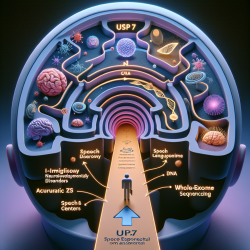Introduction
As a practitioner dedicated to creating positive outcomes for children, understanding how acute stress affects skilled motor performance can significantly enhance your therapeutic interventions. The research article, The Impact of Acute Stress Physiology on Skilled Motor Performance: Implications for Policing, provides valuable insights that can be applied to improve your practice. This blog post will explore key findings from the research and discuss how you can implement these insights to benefit the children you work with.
Understanding Acute Stress and Motor Performance
Acute stress, as defined by Selye (1956), is a challenge that threatens the internal balance of physiological systems. This stress response involves the activation of the autonomic nervous system (ANS) and the hypothalamic-pituitary-adrenal (HPA) axis, leading to physiological changes that can impact motor performance.
The research highlights that acute stress can impair skilled motor performance by affecting neuromuscular control. This is particularly relevant for children who are developing motor skills, as stress can hinder their ability to perform tasks that require fine motor control.
Key Findings from the Research
- Autonomic Nervous System Response: Acute stress activates the sympathetic nervous system (SNS), which can enhance sensory perception but may also lead to maladaptive responses under extreme stress.
- Neuroendocrine Response: The HPA axis releases cortisol, which can either promote or impede brain function depending on the stress level. Optimal cortisol levels are crucial for maintaining motor performance.
- Musculoskeletal System Impact: Chronic stress can increase muscle tension, leading to inefficient movement patterns and potential musculoskeletal disorders.
- Skilled Motor Impairments: Acute stress can significantly impair fine motor skills, making it difficult to perform tasks that require precise control.
Applying Research Insights to Your Practice
Understanding the impact of acute stress on motor performance can help you develop more effective therapeutic interventions for children. Here are some practical strategies:
- Create a Calm Environment: Reducing stressors in the therapy environment can help children focus better and perform motor tasks more efficiently.
- Gradual Skill Building: Introduce motor tasks progressively, starting with simple tasks and gradually increasing complexity. This approach helps children build confidence and reduces stress.
- Incorporate Stress Management Techniques: Teach children relaxation techniques, such as deep breathing or mindfulness, to help them manage stress and improve motor performance.
- Scenario-Based Training: Similar to police training, use realistic scenarios to practice motor skills under controlled stress conditions. This can help children adapt to real-world challenges.
Encouraging Further Research
While the current research provides valuable insights, further studies are needed to understand the specific mechanisms by which stress affects motor performance in children. Encouraging collaboration between researchers and practitioners can lead to more targeted interventions and better outcomes for children.
Conclusion
By integrating the findings from the research on acute stress and motor performance, you can enhance your therapeutic practice and create better outcomes for the children you work with. Understanding the physiological responses to stress and implementing evidence-based strategies can help children develop their motor skills more effectively.
To read the original research paper, please follow this link: The Impact of Acute Stress Physiology on Skilled Motor Performance: Implications for Policing.










